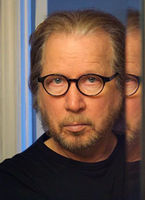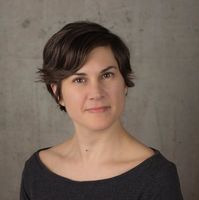"Compassion, Imagination, Enthusiasm, & the Freedom to Make Mistakes" Humber Summer Workshop Instructors Giles Blunt & Michelle Winters on Workshopping & Writing Advice
Is this the summer you kick start that writing project you've been thinking about for so long? The Humber Summer Workshop, part of the prestigious Humber School for Writers, is a short, intensive program aimed to help writers jump start their books.
During the six-day program, mornings are spent in workshops with writing advisors, and afternoons are spent on craft and career talks with guests that include authors, publishers, editors, and agents.
We got a chance to speak with two of the workshop's 2019 advisors: Canadian crime novel superstar and screenwriter Giles Blunt and Scotiabank Giller Prize nominated author Michelle Winters. They told us about why the workshop can be such a unique and valuable experience, what catches their eye when they're reading students' work, and their best advice for emerging writers.
The workshop runs July 7-12, 2019 and accepts registration requests until July 2. Click here for more information on how to apply.
Open Book:
What drew you to wanting to be part of the summer workshop? What is unique about this experience, for both the students and the instructors?
Giles Blunt:
I usually teach through the distance learning program, which is effective, but you don’t get to meet the students. In a workshop situation, the writers are seeing each other daily, getting to know and trust one another and value their constructive criticism. It’s a great introduction to how readers will react to your work.
Michelle Winters:
I learned to write through the generosity of a variety of editors, peers, and publishers who took the time to sit down and give me notes and take my work seriously. Out of all that, I’ve developed an aptitude and inclination to pass it on and help out where I can. Gratitude fuels a lot of my artistic activity, and I’m eager to give back some of the incredible guidance I was lucky enough to receive.
OB:
In your opinion, what are the most important elements of a successful workshop environment?
GB:
A successful workshop will provide an environment where writers can feel comfortable receiving criticism from people who are experiencing similar challenges. The advisor will contribute their technical expertise without necessarily trying to impose their taste.
MW:
Compassion, imagination, enthusiasm, and the freedom to make mistakes. It should be a fertile ground to foster creativity and make you excited to go home and write.
OB:
What are you personally looking for in a manuscript right now? What aspects do you find yourself connecting to most in the student work you read?
GB:
Students almost never choose the same stories or situations that I might. The most exciting moments are when they come up with dialogue or turns of phrase that are expressive of their own character—that I would never have come up with. My main contribution seems to consist of helping them clear away “clutter.”
MW:
Originality and a dedication to telling the story in the story’s service.
Your CanLit News
Subscribe to Open Book’s newsletter to get local book events, literary content, writing tips, and more in your inbox
OB:
What advice do you find yourself offering most frequently to students and emerging writers?
GB:
I recommend they read writers who are particularly strong in the areas where they need help. If they are writing about office politics, for example, or have trouble introducing new characters, I point them to John le Carré, who is a master at both. If they haven’t yet mastered structuring scenes in a lean, dramatic way, I might recommend Graham Greene. If they need to learn to let nouns and verbs carry the weight I might suggest Cormac McCarthy or Elmore Leonard.
MW:
Meet other writers and remember the reader.
OB:
What would you say to writers considering enrolling in the workshop?
GB:
I think it will be valuable to anyone who wants to improve their writing. But it’s important that you bring in a piece that is in flux, that you’re willing—even eager—to rewrite. If perhaps you’ve already done several drafts and feel that the work is now “fixed” in your mind, then it might be best to wait until you have something that is still in process.
MW:
It’s hard to overstate the value of contact with other writers.
___________________________________________________
Giles Blunt grew up in North Bay, Ontario, a small city similar to the Algonquin Bay of the John Cardinal novels. After studying English literature at the University of Toronto, he moved to New York City, where he lived for the next twenty years, before moving back to Toronto in 2002. The first Cardinal novel, Forty Words for Sorrow, won the British Crime Writers Silver Dagger award, and the second, The Delicate Storm, won the Crime Writers of Canada Arthur Ellis award for best novel, as did the latest, Until the Night. He has been twice longlisted for the Dublin IMPAC award.
Michelle Winters is a writer, painter, and translator from Saint John, N.B., living in Toronto. Her written and visual work stretches the limits of the probable, explores the lushness of the industrial, and anthropomorphizes with gay abandon. Her stories have been published in THIS Magazine, Taddle Creek, Dragnet, and Matrix, and she was nominated for the 2011 Journey Prize. I Am a Truck is her debut novel and was a finalist for the Scotiabank Giller Prize.





